In studying deposed royal families, a crucial distinction has to be made. There’s a colossal difference between legitimacy, prestige, and notoriety.
Using ruling families as an example, the British one is, without a single solitary doubt, the most notorious and prestigious one. However, under the purview of international law, the British Royal Family is as legitimate (sovereign) as the almost unknown Royal Family of Tonga, a Polynesian kingdom with around 100,000 people situated in a small archipelago in Oceania.
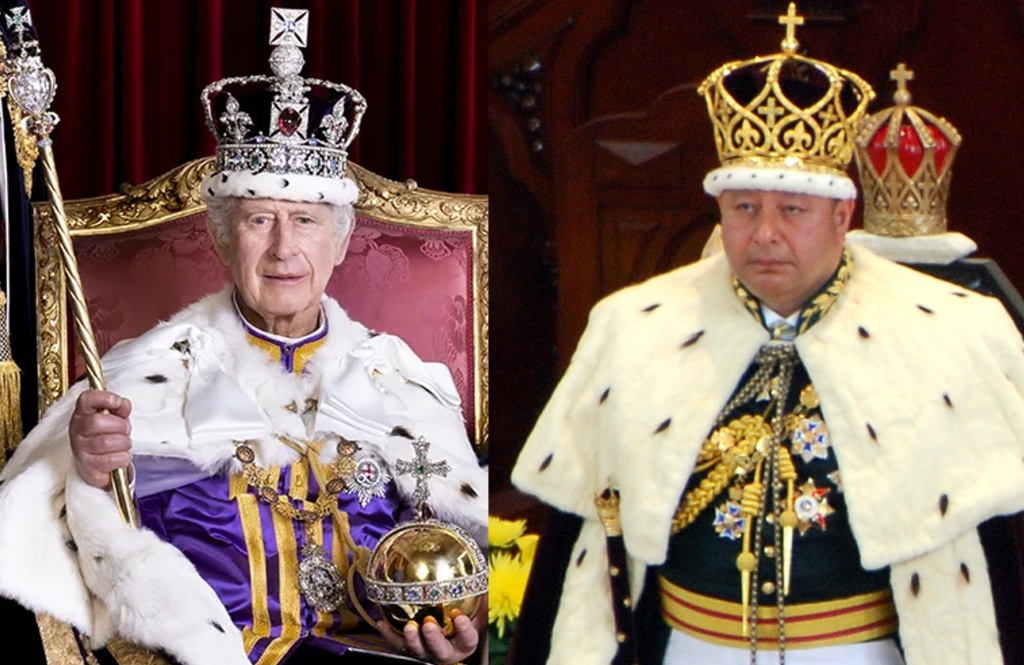
Back to the dispossessed Royal Families, they’re officially recognized under international law, in other words, several sovereign countries both monarchies and republics officially and unofficially acknowledge their legal existence. Since they were originally sovereign, theoretically, their legality does not depend on any further recognition. However, recognition usually brings prestige and notoriety. But not always.
For example, although highly prestigious and famous, the descendants of the deposed Royal families of Austria, Italy, France, and Germany (amongst others) continue to use their royal titles and keep their orders of chivalry and merit alive, but they have no official recognition from the countries they once ruled. As aforementioned, that doesn’t mean in any way, shape or form, that they’re not legitimate.
The Royal Family of Ghassan, the Sheikhs El Chemor, have outstanding 812 years of uninterrupted and documented official recognition. The first State of Ghassan was established in the Levant in 220 CE and lasted until 638 CE, making the family the oldest Arab Dynasty and the oldest Christian bloodline still active. Despite the fact that the Royal House is 1,803 years old, with the advent of Islam and countless wars and exile, a lot was lost from the First States. However, since the establishment of the descendants of the last King of Ghassan Chemor Jablah in Lebanon, and their consequential rule in the Principality of Al-Aqoura in the Byblos district in 1211 CE until 1633 CE, there’s uninterrupted and documented official recognition. A side note: In the 7th Century Al-Aqoura was one of the most important Christian cities in the Middle East with a staggering number of 40 churches!
The original family name is El Chemor, (it has many transliterations: Shoummar, Shemer, Shamir, Chmr, etc.) and it comes from King Chemor Jablah of the Ghassanid Kingdom in the Levant. Some of the King’s sons sought refuge in today’s Lebanon and were known as Bani Chemor (or the children of King Chemor).
The rule in Mount Lebanon in the autonomous principalities (Sheikhdoms) of Al-Aqoura (1211-1633 CE) and Zgharta-Zeiwe (1641-1747 CE) is very well documented and considered to be official Lebanese history by the government and the Maronite Church:
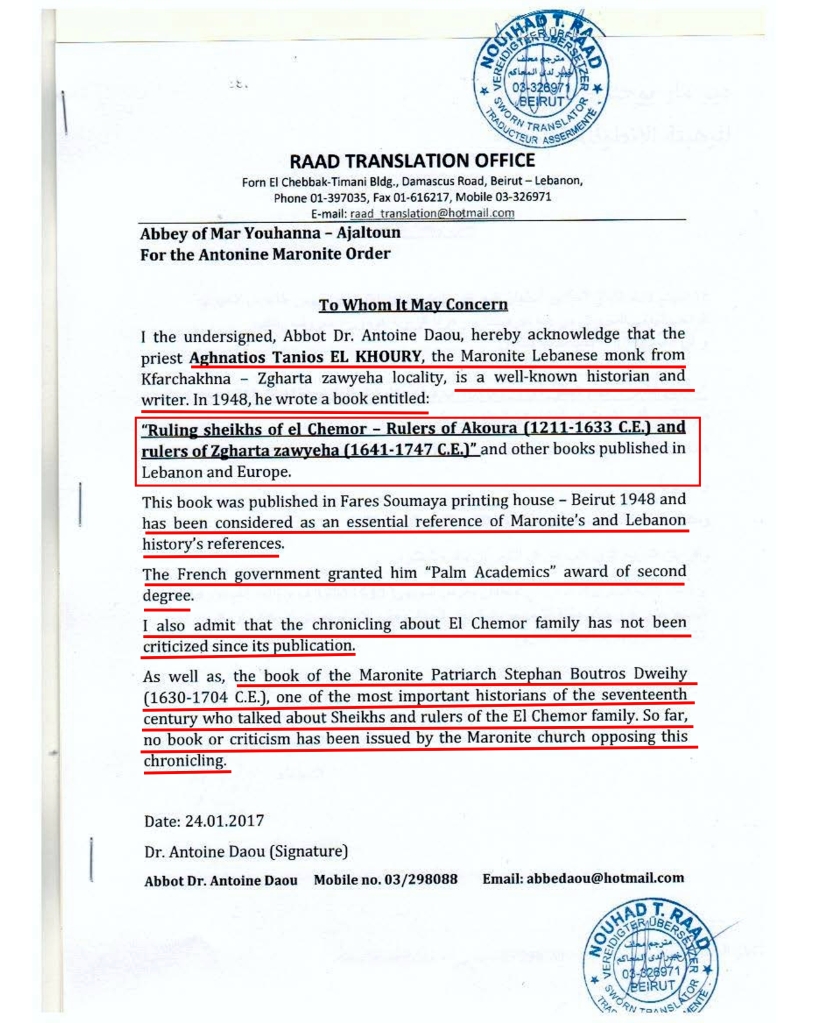
Even after the deposition of the Christian branch of the family in 1747 CE, family members continued to use the titles and kept being recognised by the Ottoman Empire as proven by the several documents sealed by the Ottoman officials:

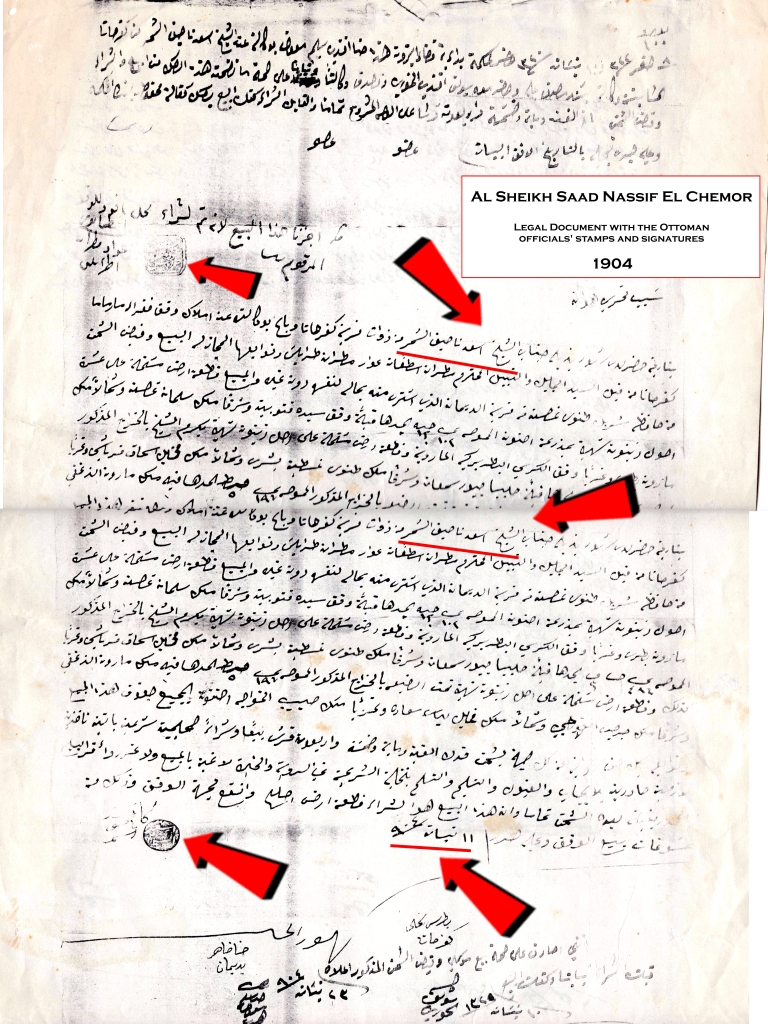
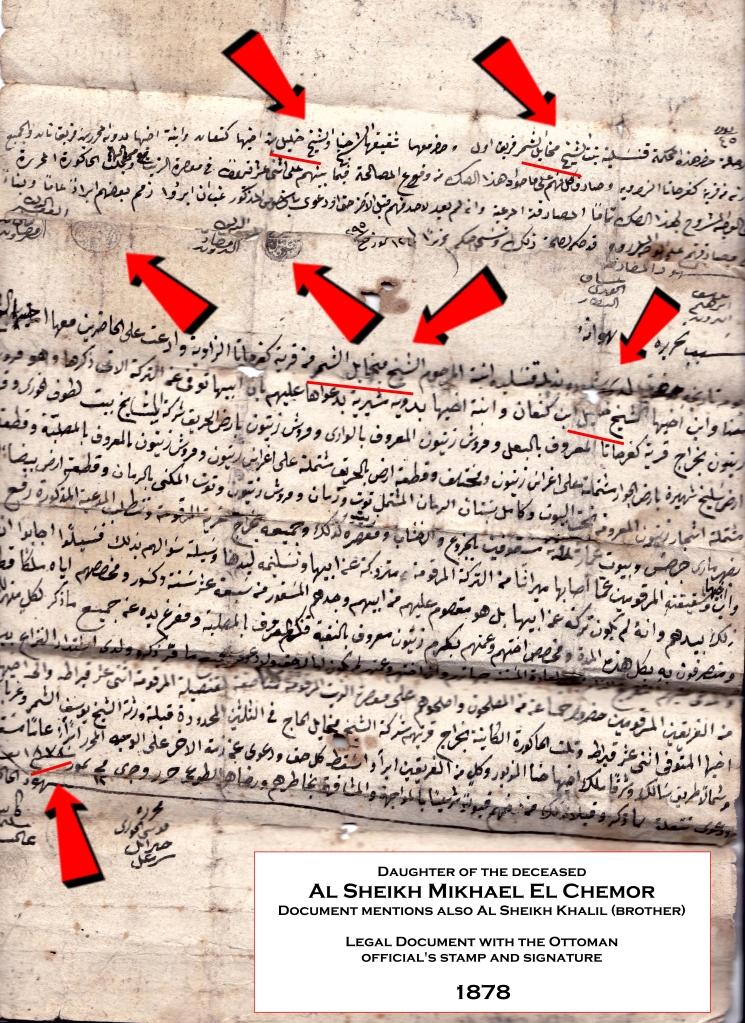
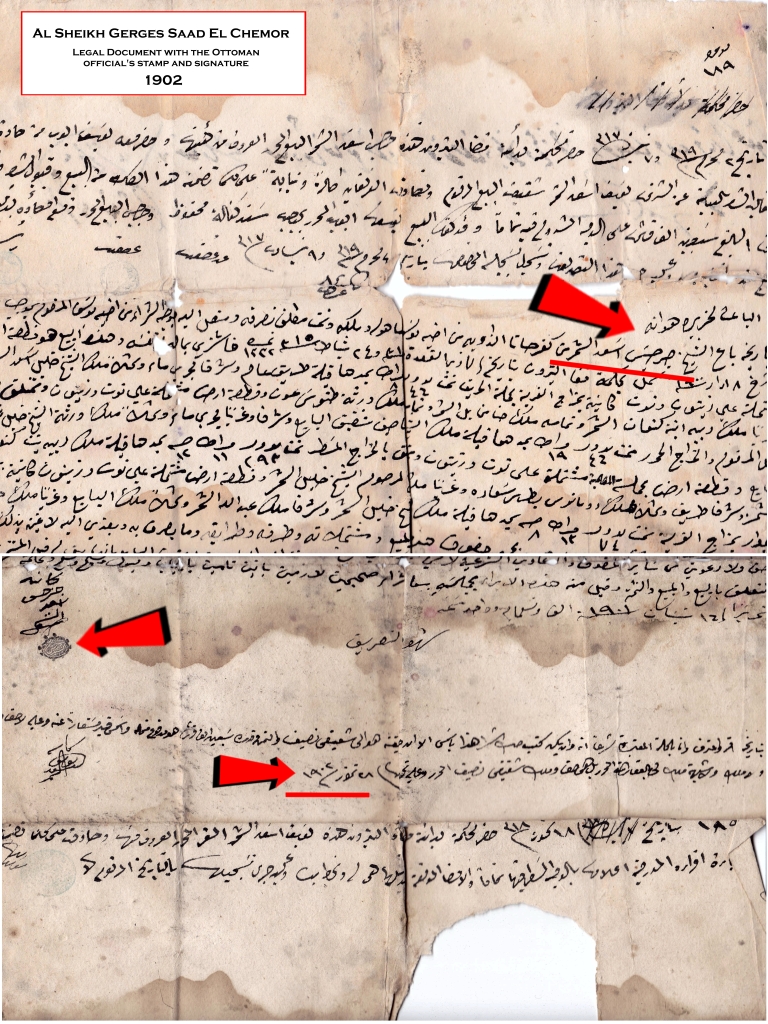
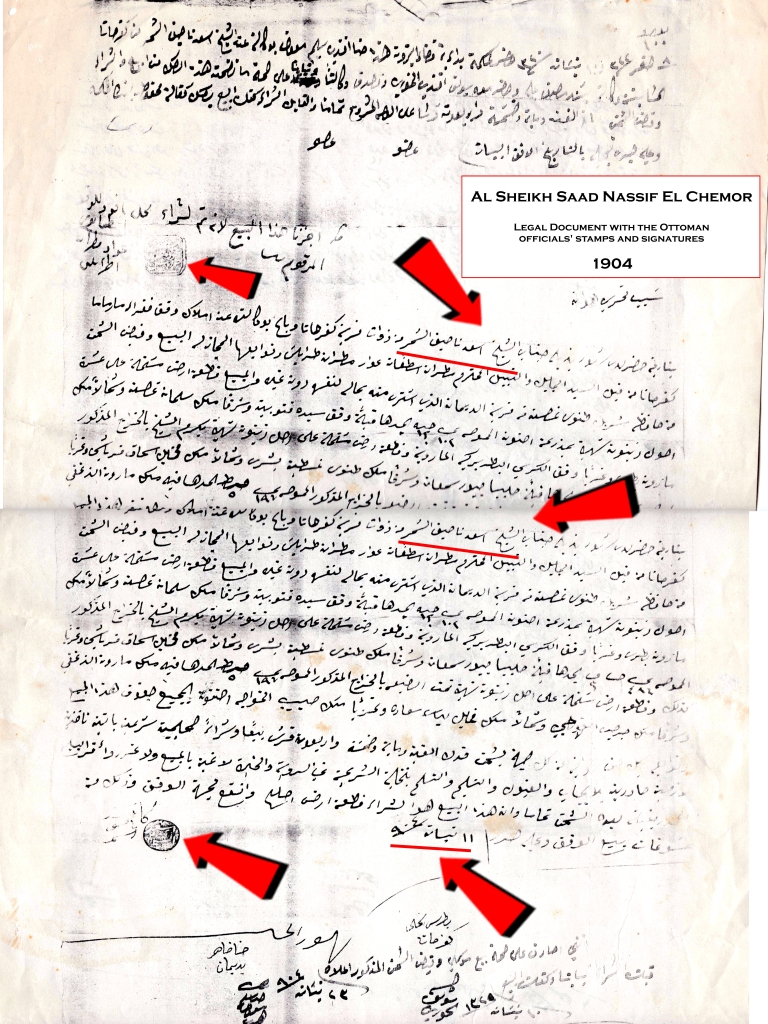
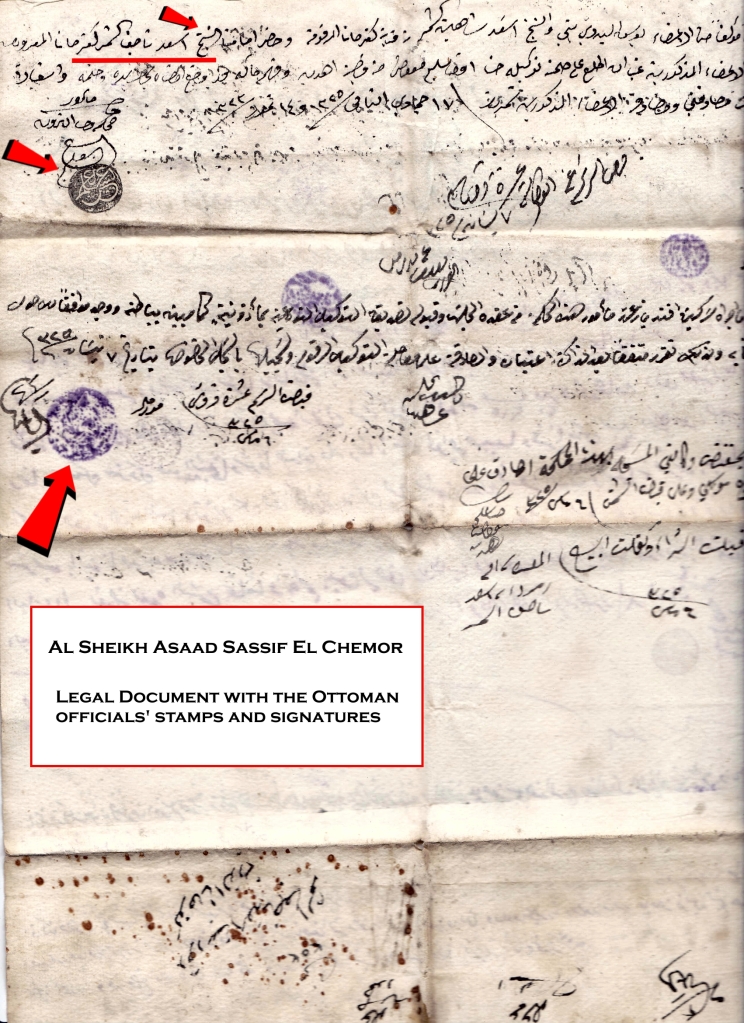
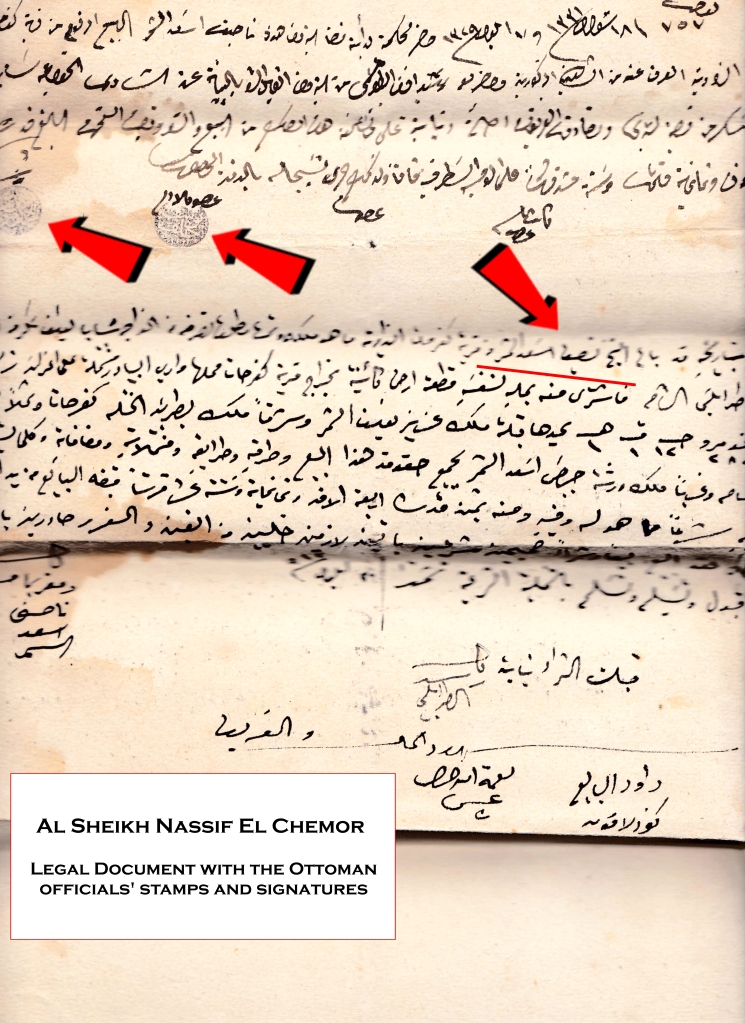
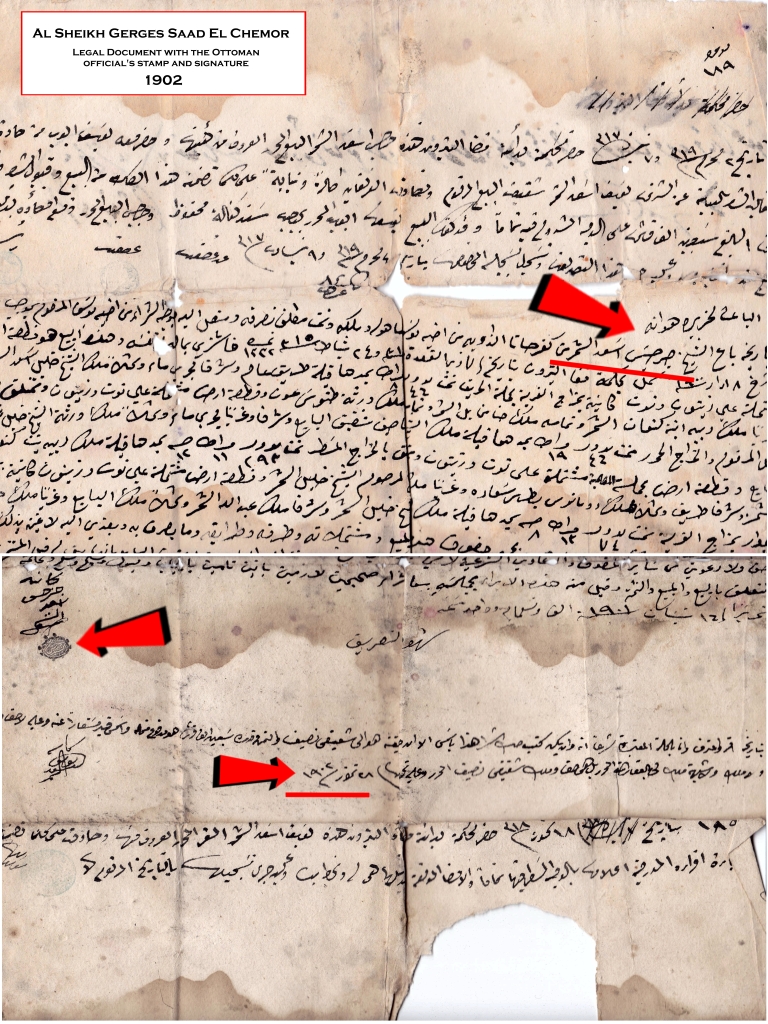
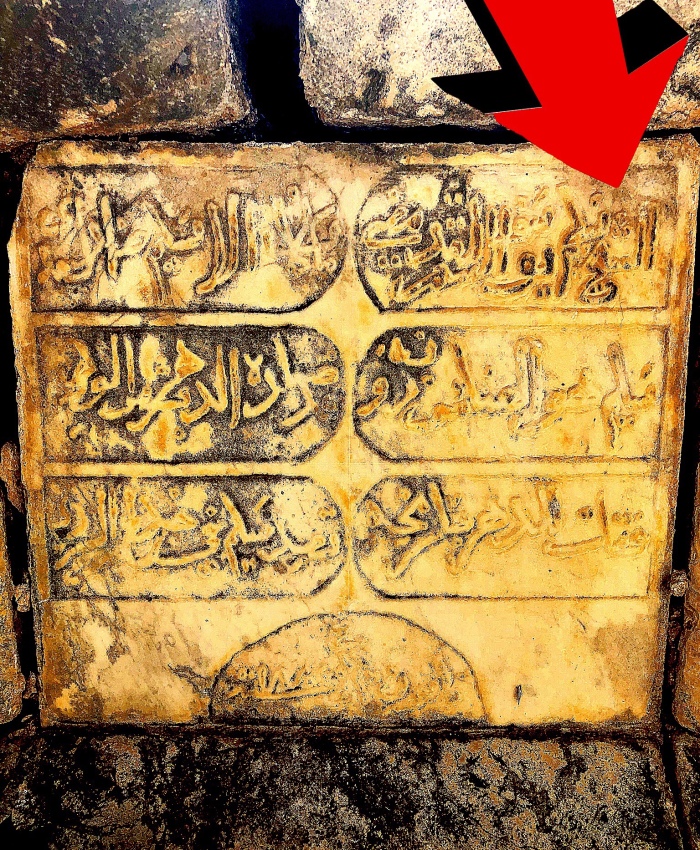
Even with the advent of the Lebanese Republic, the titles of the El Chemor Family continued to be recognized until the present day:
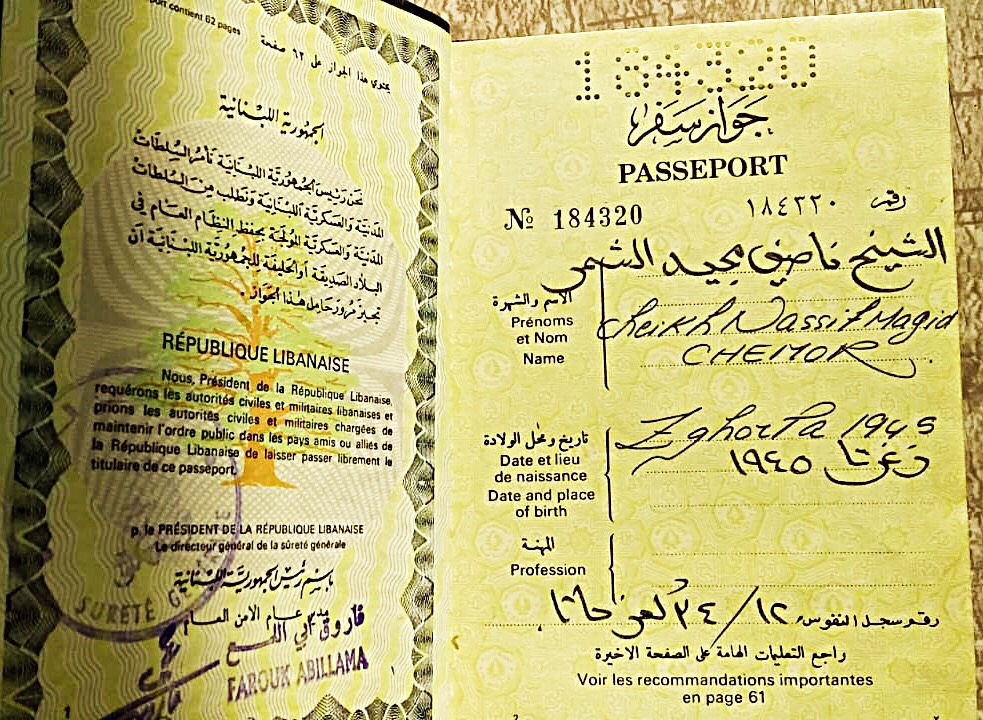
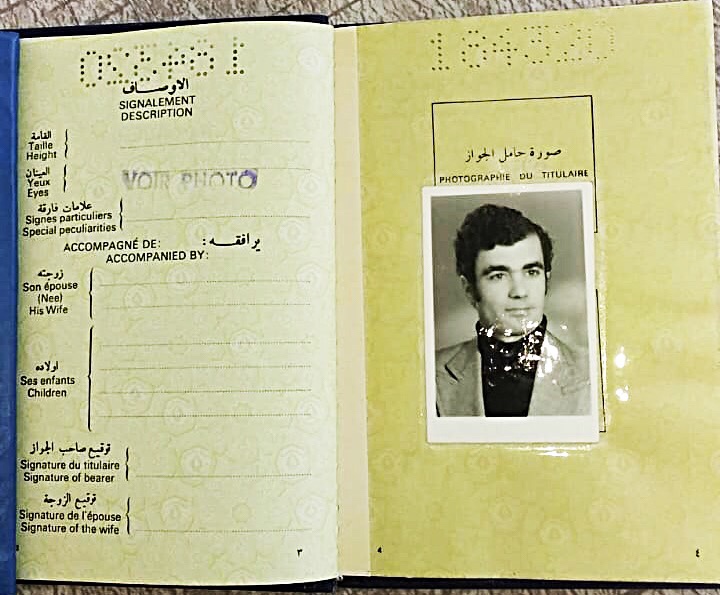
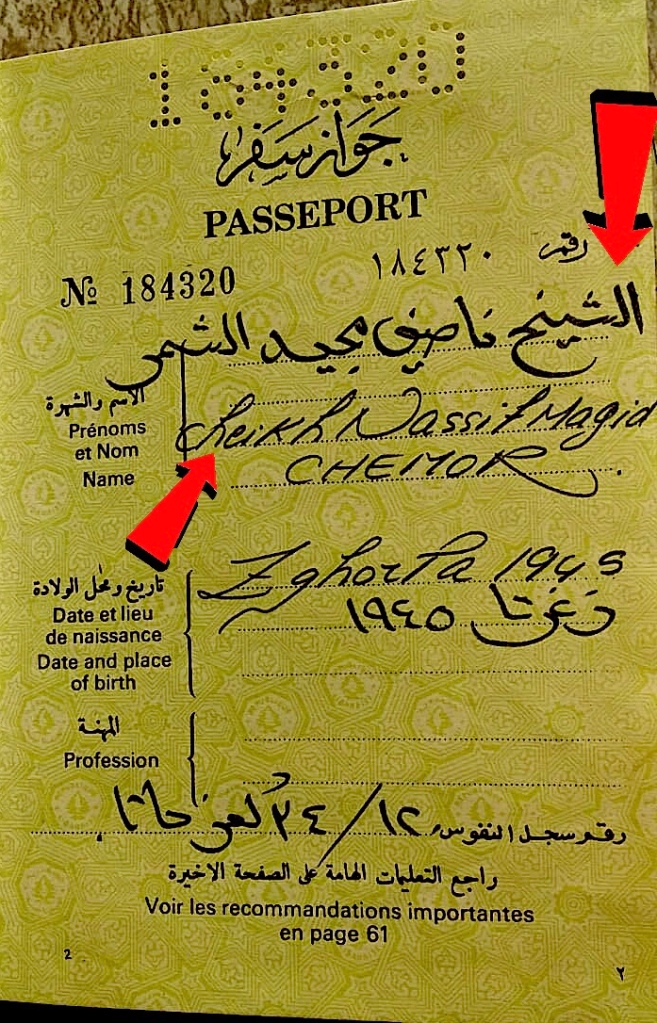
Above is the recent Lebanese passport for the late Sheikh Nassif El Chemor (1945-2017)

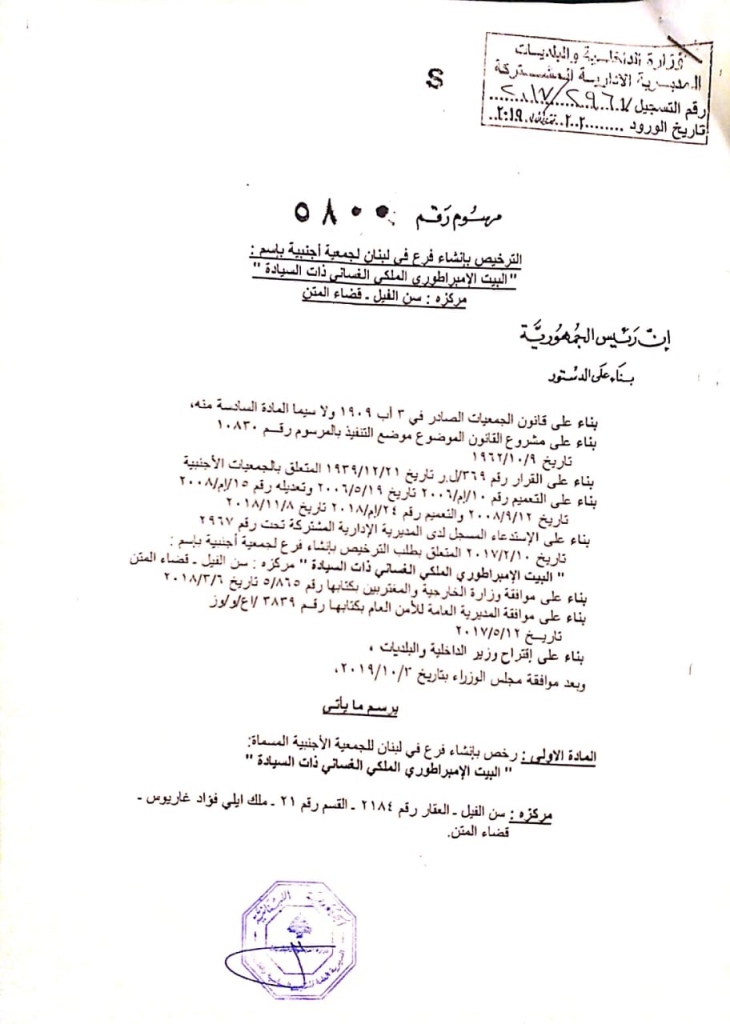
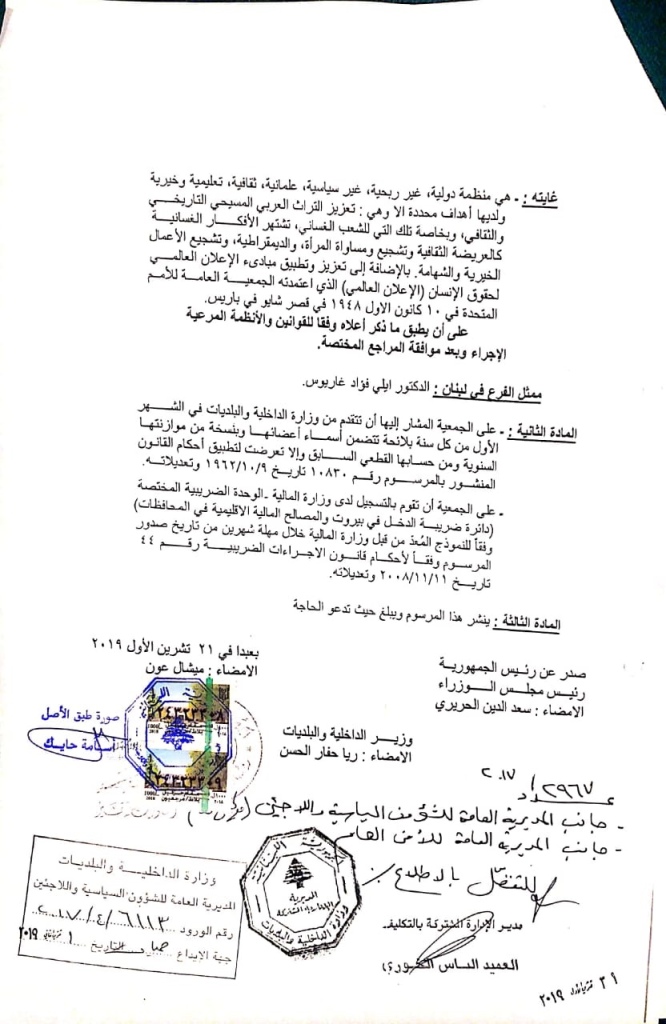
Above: The Presidential Decree 5800/2019 recognizing the Sovereign Imperial and Royal House of Ghassan and authorizing the establishment of an official branch in Lebanon (signed by the President, Prime Minister and Minister of Interior)
Below: legal translation
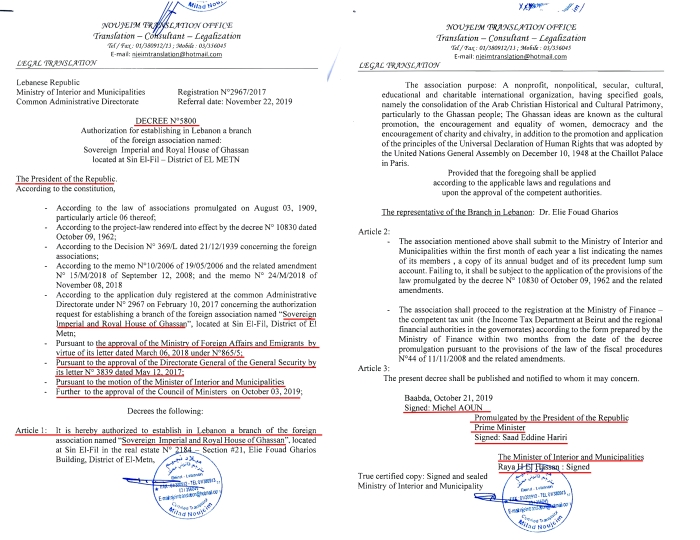
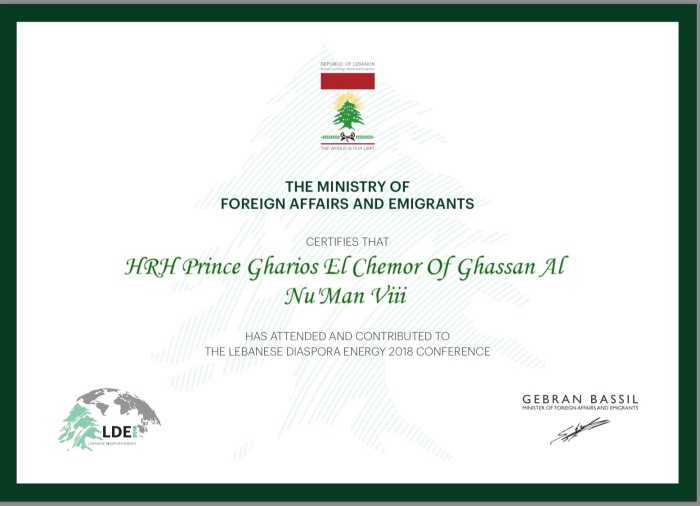
2018’s certificate from the Lebanese Ministry of Foreign Affairs and Emigrants signed by the Minister acknowledging the contribution of HRH Prince Gharios El Chemor using his title officially (event under the high patronage of the president of the Republic)
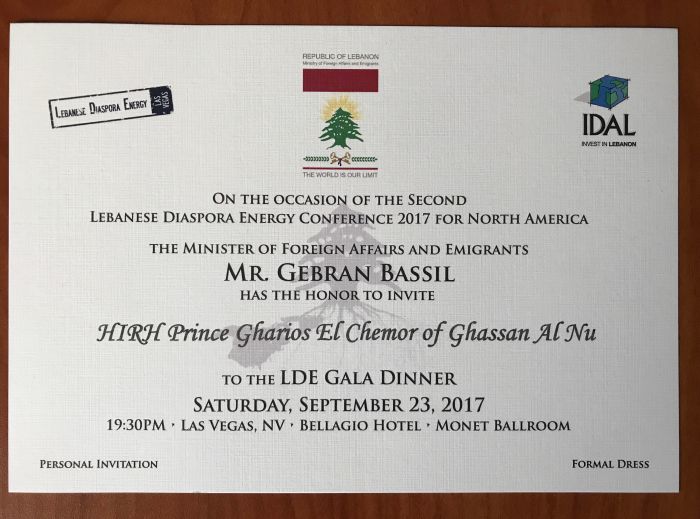
2017’s official invitation from the Ministry of Foreign Affairs and Emigrants for a government gala dinner inviting Prince Gharios by his official title
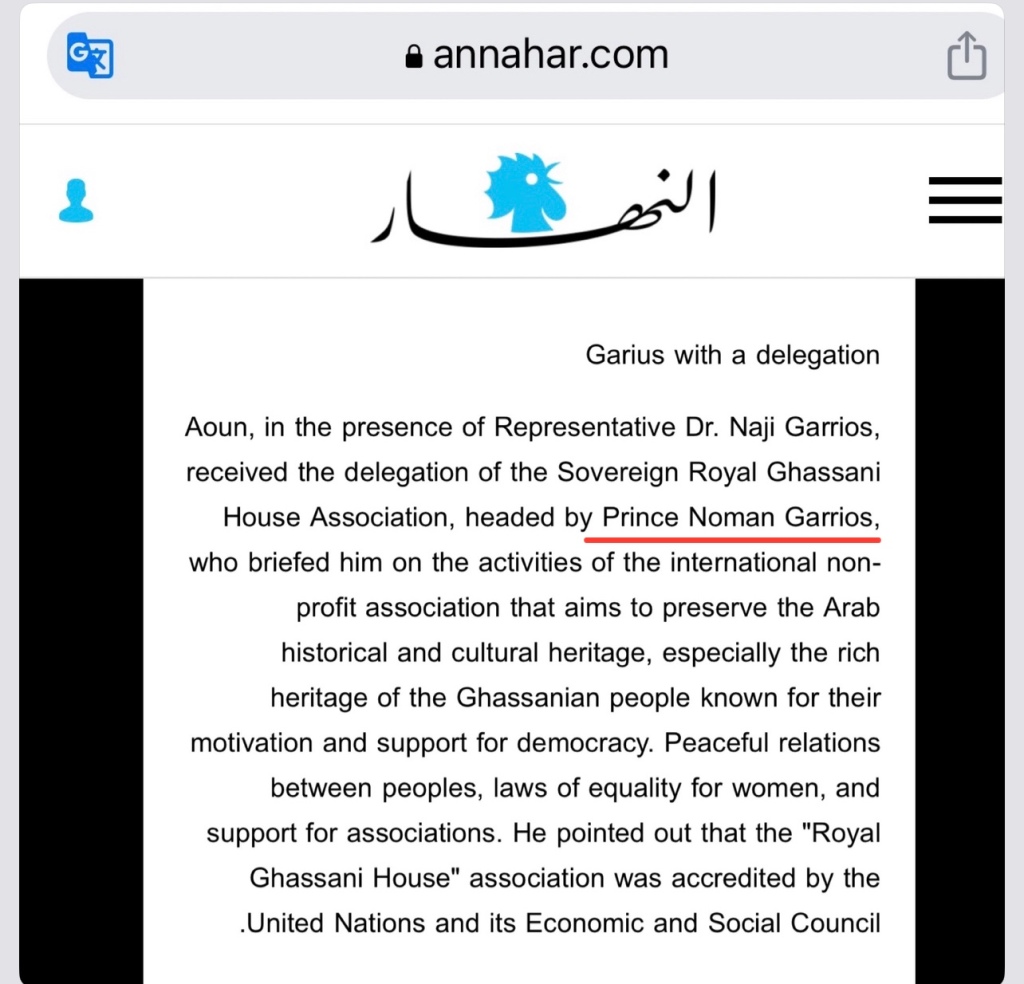
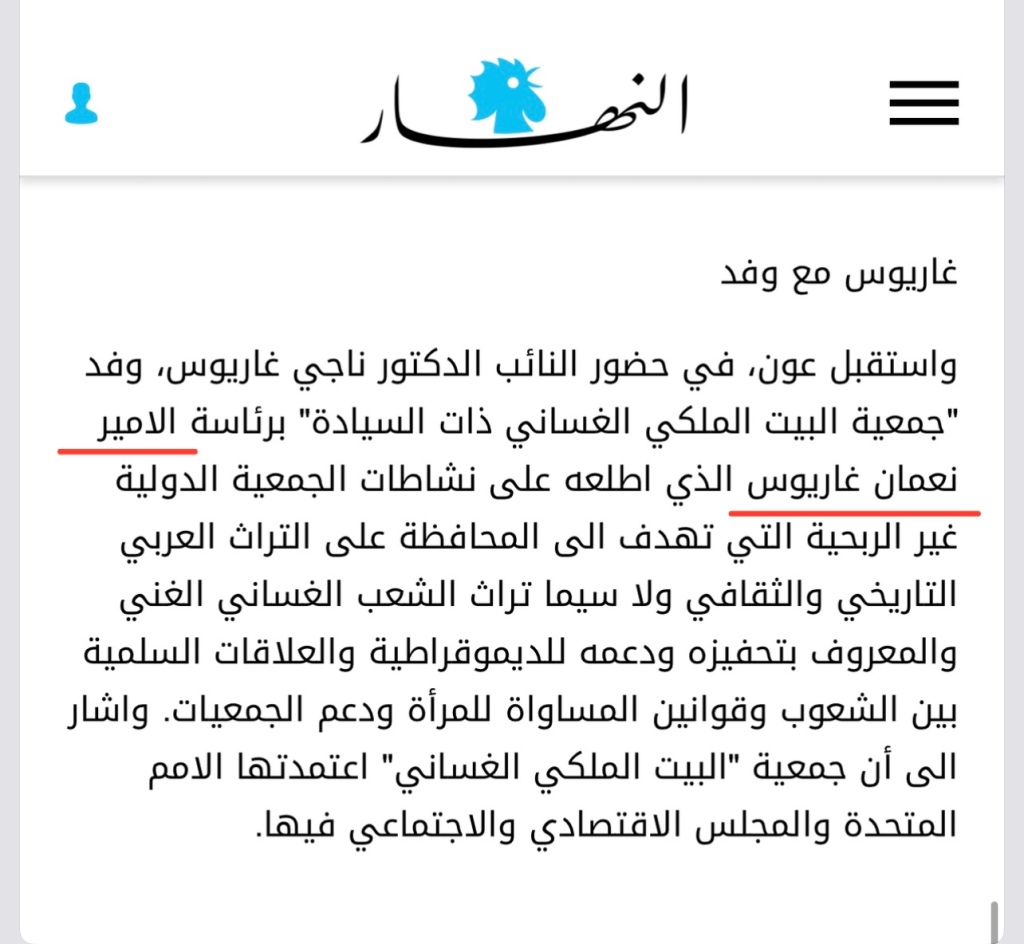
Above: Corroborating all of that, the leading Lebanese newspaper An-Nahar (founded in 1933) article commenting on the Presidential agenda citing the Royal House of Ghassan delegation and addressing Prince Gharios by the title (May 8th 2017)
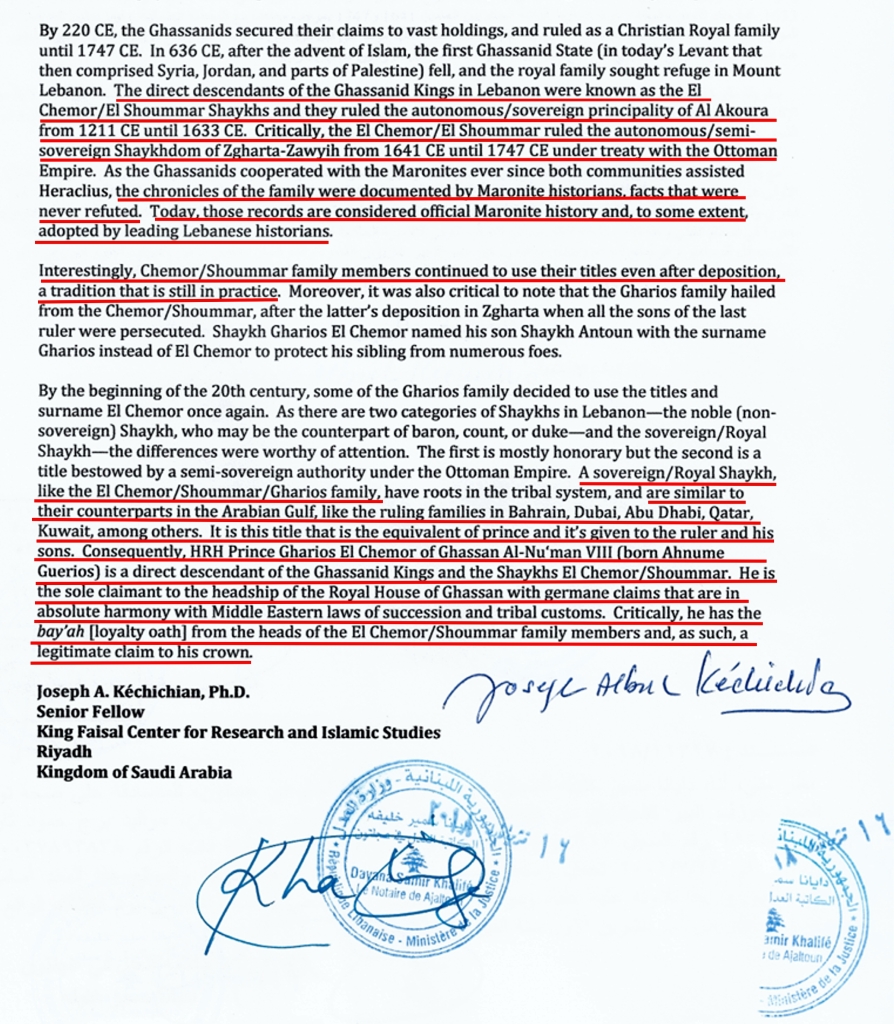
Above: An excerpt of the 2018’s sworn legal affidavit signed by the world’s leading expert in Arab Ruling families, Joseph Kechichian, PhD., Senior Fellow of the King Faisal Center in Saudi Arabia, recognising the El Chemor Family as lawful descendants and heirs of the Ghassanid Kings and HIRH Prince Gharios El Chemor as the Head of the Royal House of Ghassan with germane claims and titles
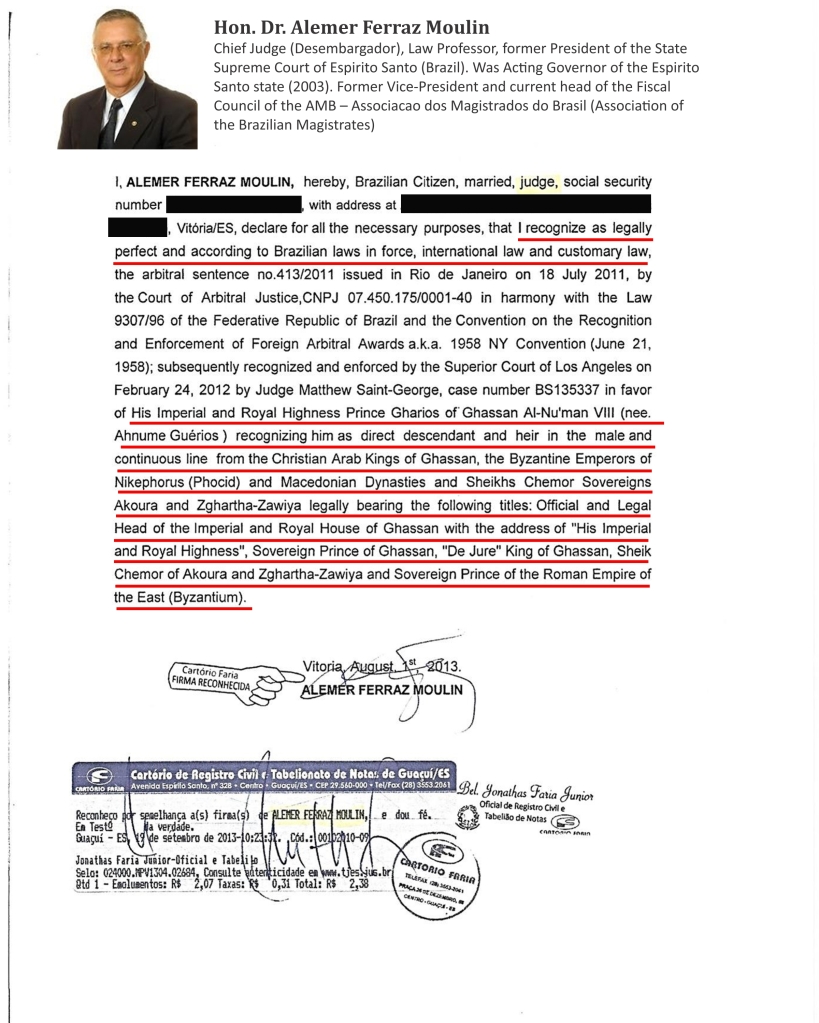
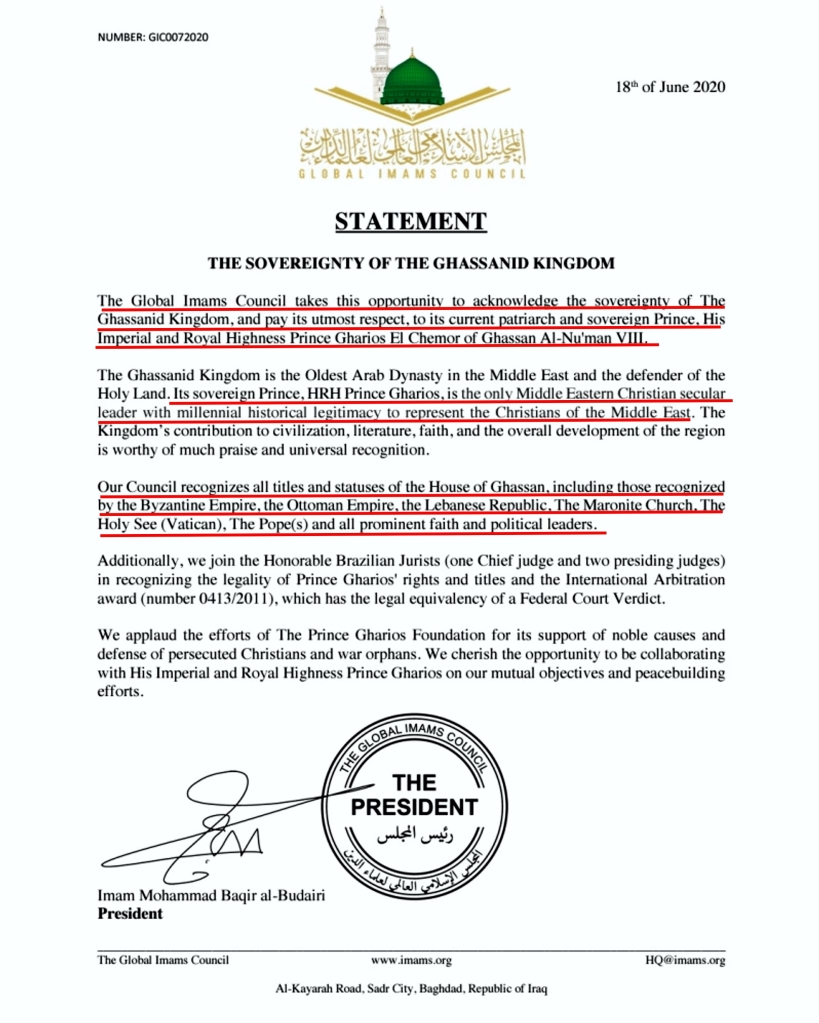
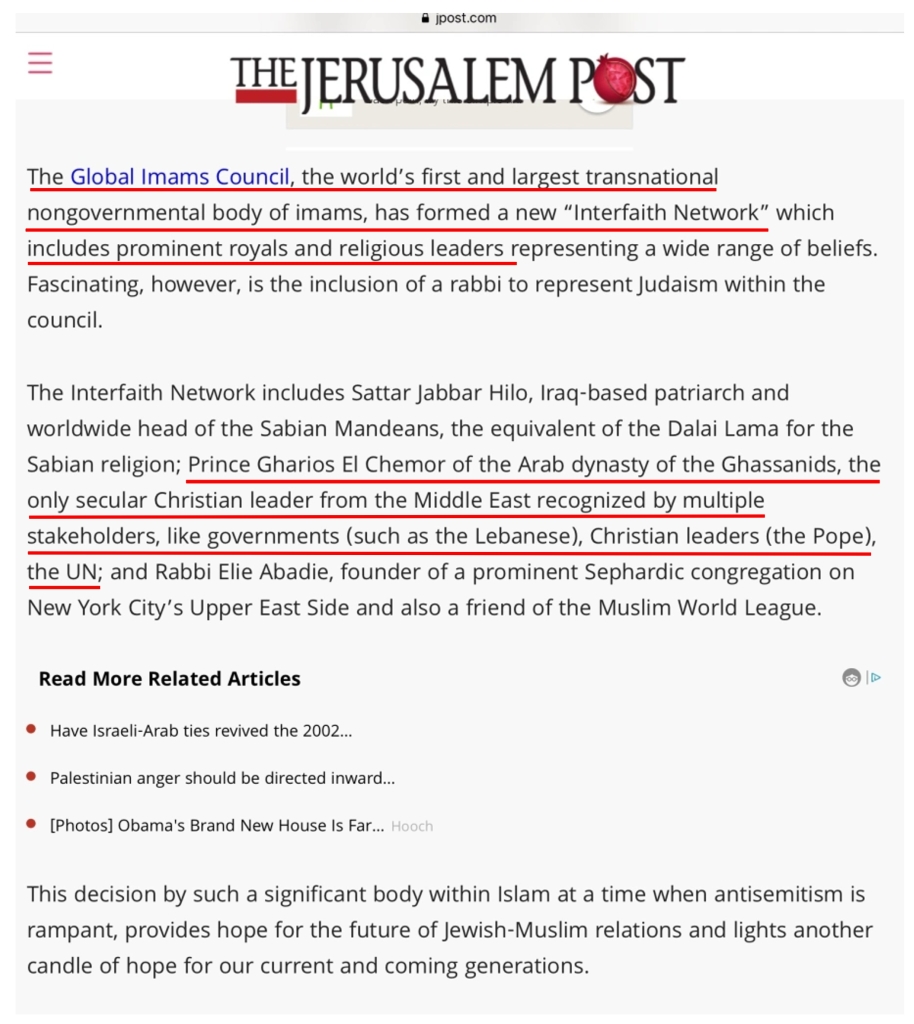
According to several scholars of international law, a title, a royal house, and orders of merit and chivalry from deposed heirs of royal bloodlines is only fully recognized if it’s done by an incumbent head of State.
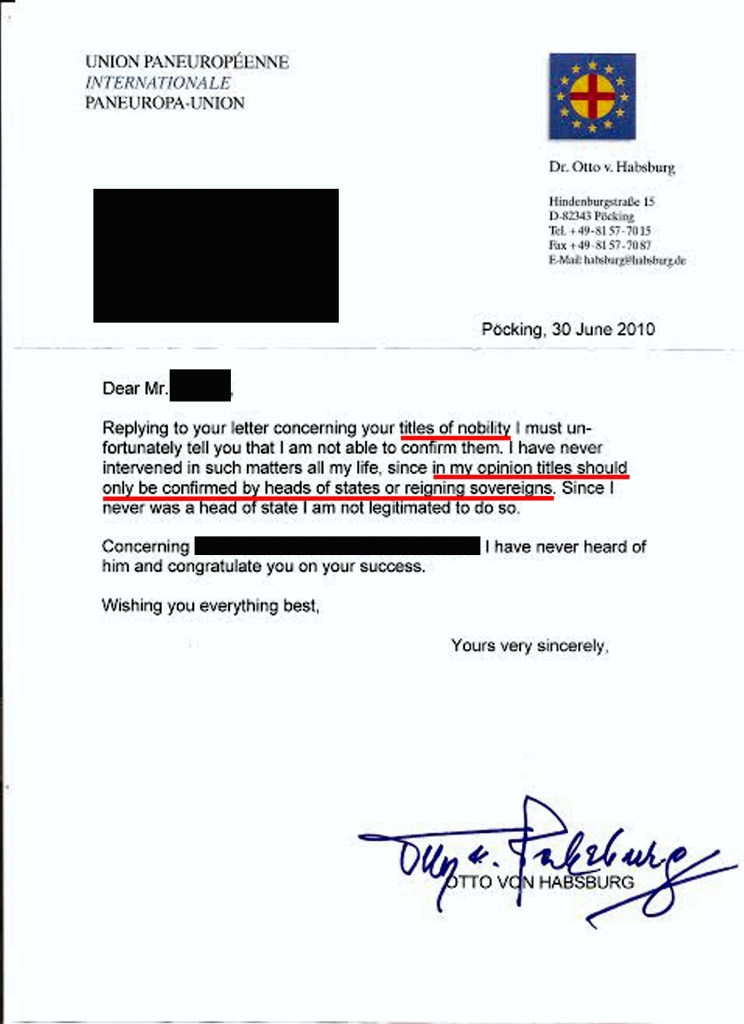
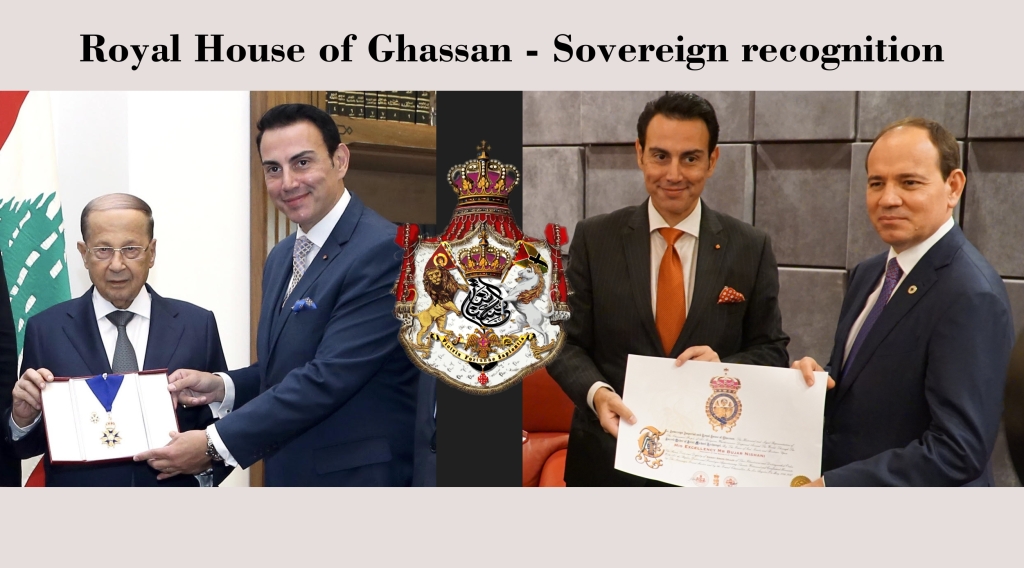
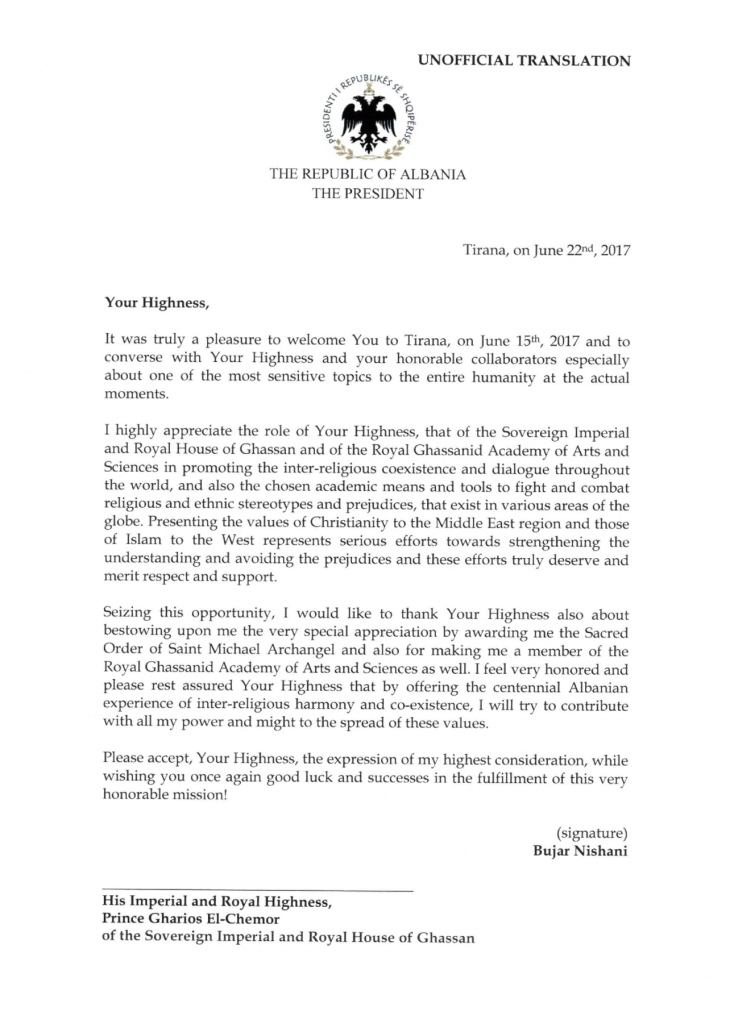

In the face of the overwhelming and extraordinary amount of empirical evidence, it’s virtually impossible to deny the stupendous official recognition meticulously documented for over eight centuries.
So why the Royal Family of Ghassan is not well known?
The answer is not simple. Many factors have contributed to that:
- It’s a Christian dynasty in Muslim lands,
- Prejudice from historians: Muslim historians because the Ghassanids were Christians and European historians because the Ghassanids were Arabs,
- The refusal of the El Chemor family to cooperate with the Ottoman Empire and the ruling princes after the deposition. This fact made the family lose recent political prestige,
- The majority of information is in Arabic and started to be translated only a decade ago,
- With the premature death of HIRH Prince Sheikh Antonios El Chemor (1910-1971) the Royal Family had a hiatus from public representation until 2008 when HIRH Prince Gharios assumed the headship of the Dynasty (although the family members in Lebanon never stop using the titles publicly),
- Lack of interest in the subject even in Lebanon,
- Up to 1988, anything related to monarchy was forbidden in Brazil due to the constitution (1891) that followed the coup-de-etat that overthrown the Brazilian Emperor in 1889, making it impossible to Gharios/El Chemor family members in Brazil to even register their titles legally.
“CONSTITUTION OF THE REPUBLIC OF THE UNITED STATES OF BRAZIL (February 24, 1891)
SECTION II – bill of rights
Article 72
§ 2 – All are equal before the law.
The Republic does not admit birth privileges, ignores nobility forums and extinguishes existing honorary orders and all their prerogatives and benefits, as well as noble and council titles.” https://www.planalto.gov.br/ccivil_03/constituicao/constituicao91.htm
To learn more, we recommend both documentaries (click on the link to watch for free)
11 thoughts on “Royal Ghassanid titles: 812 years of uninterrupted, irrefutable, and documented official recognition”